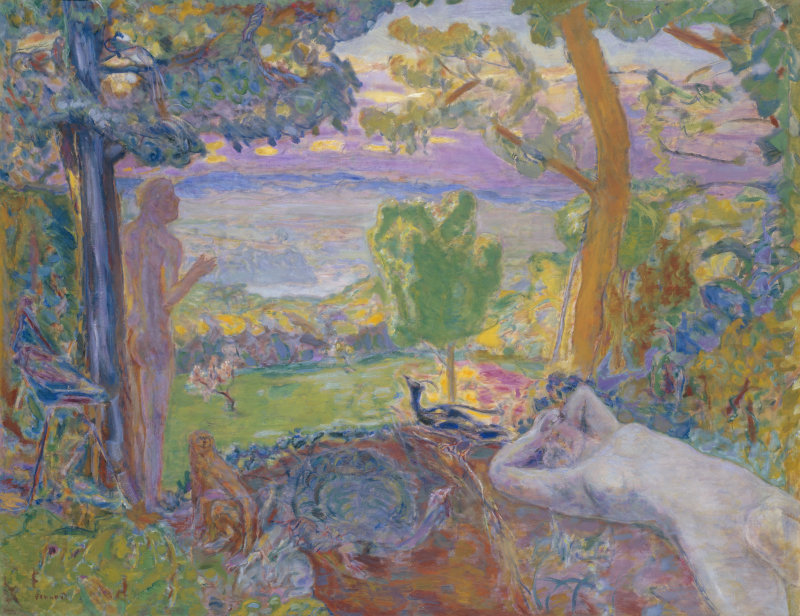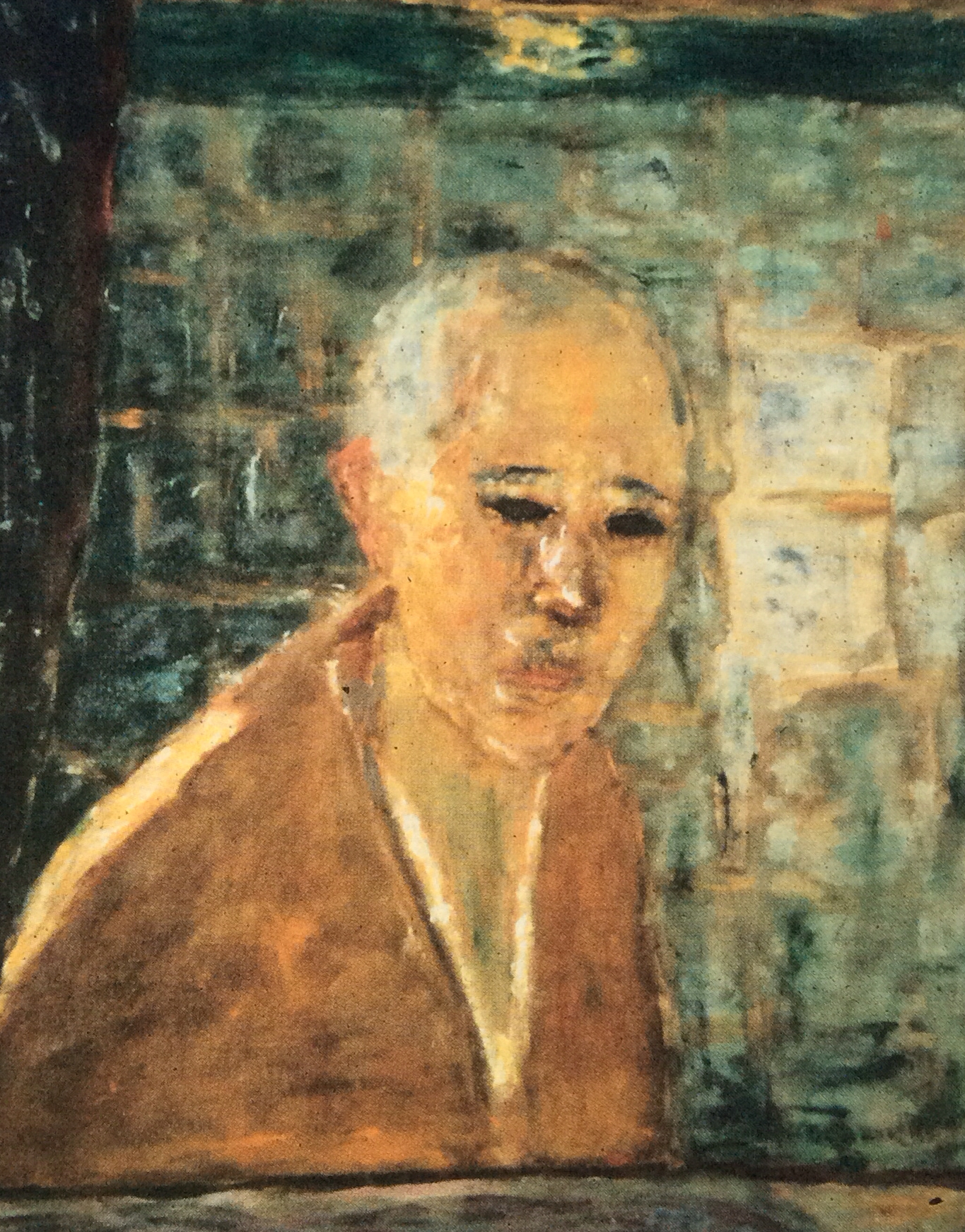Following a period spent producing Parisian scenes in the style of Édouard Vuillard and Henri de Toulouse-Lautrec, Pierre Bonnard virtually reinvented his art around 1905. The artist’s new emphasis on large-scale compositions, bold forms, and brilliant colors shows his awareness of the work of his contemporaries Henri Matisse and Pablo Picasso, as does his focus on Arcadian landscapes, a theme he had not previously explored.
Part of a series of four canvases painted between 1916 and 1920 for his dealers, Josse and Gaston Bernheim, "Earthly Paradise" demonstrates Bonnard’s new, daring investigations of light, color, and space. Here the artist used foliage to create a proscenium-like arch for a drama involving a brooding Adam and recumbent Eve. The contrast Bonnard established between the figures seems to follow a tradition in which the female, presented as essentially sexual, is connected with nature, while the male, essentially intellectual, is able to transcend the earthly. Heightening the image’s ambiguity is an array of animals, including birds, a monkey, rabbits, and a serpent (here reduced to a garden snake). This less-than-Edenic paradise may reflect the artist’s response to the destruction of Europe during World War I, which was still raging when he began the painting.




Earthly Paradise
oil on canvas • 51 1/4 x 63 in
 Pierre Bonnard
Pierre Bonnard